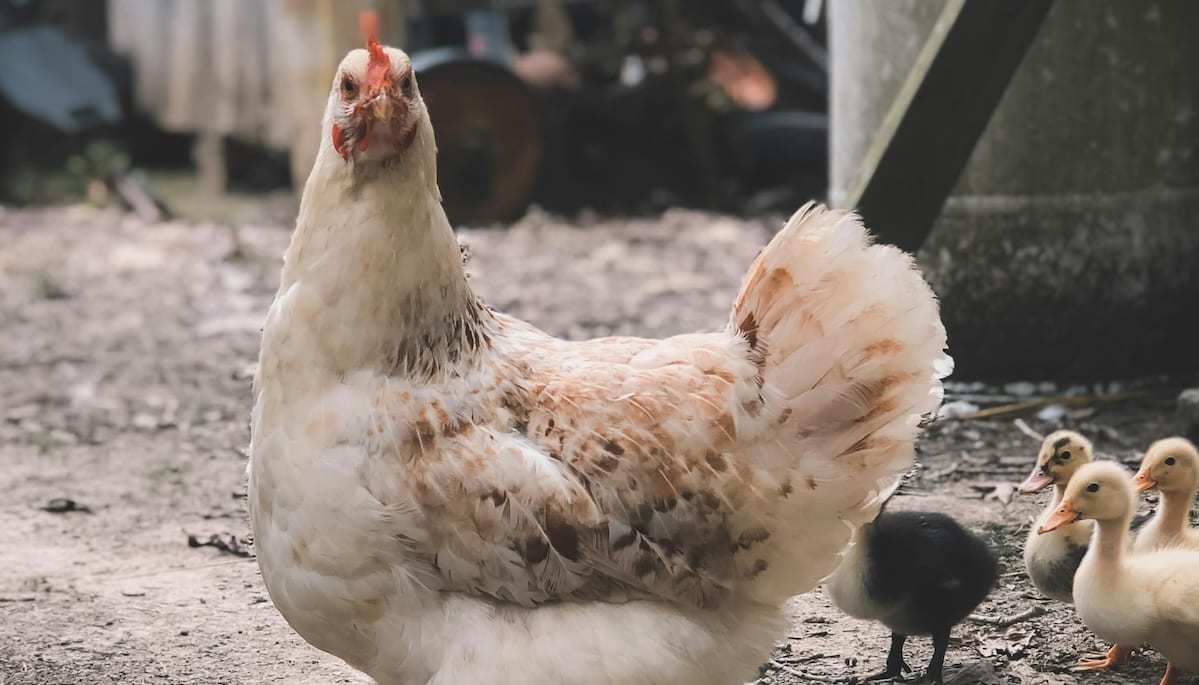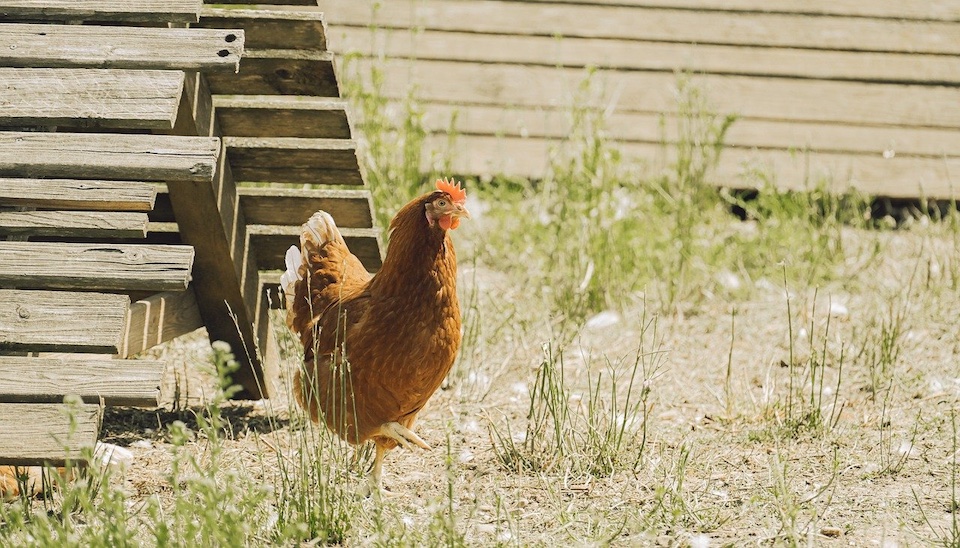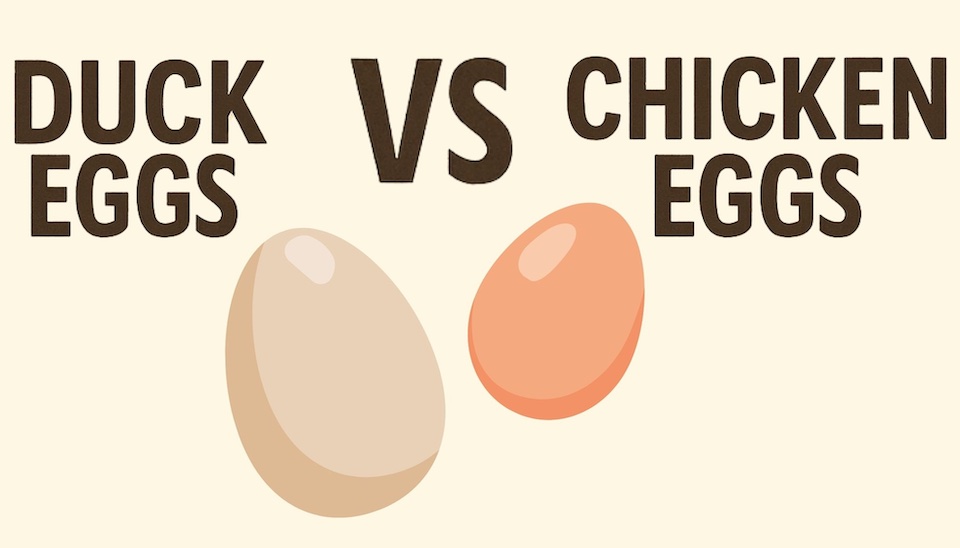Poultry Feed Additives And How They Help Your Chickens
Poultry Feed Additives And How They Help Your Chickens
When it comes to keeping your chickens healthy, productive, and happy, what you feed them makes all the difference. Feed additives are an essential part of chicken feed but they can also be tools that you use in your chicken coop to take your flock's health to the next level. Whether you’re a backyard chicken keeper with a few hens or running a larger commercial operation, the right poultry feed additives help boost nutrition, improve feed quality, and prevent common health issues.
Think of chicken feed additives as the extra ingredients that fill in the gaps regular feed might miss. They support everything from strong eggshells and shiny feathers to healthier digestion and disease prevention. And the best part? They can make feeding your chickens more efficient, reduce waste, and help you get more out of every bite your birds take.
Key additives like minerals, enzymes and probiotics make sure your chickens are getting everything they need.
You can find great chicken feed additives, supplements and healthcare products in our store.
Mineral Additives and Supplements for Poultry
Minerals play a vital role in keeping your chickens healthy and productive.
Calcium, phosphorus, and other key minerals are the building blocks for strong eggshells, healthy bones, and vibrant feathers. Without enough of these essential nutrients, you’ll start seeing signs like soft-shelled eggs or brittle feathers, which can lead to bigger problems down the line.
For backyard keepers and commercial farmers alike, adding mineral supplements to your chickens’ diet is a simple way to avoid these issues. Even chickens that are being fed a complete feed will benefit from a low-dose mineral supplement like Mega Mineral.
Mega Mineral is an excellent choice for addressing any gaps in your flock’s nutrition. It’s packed with the right balance of minerals to promote healthy egg production and feather development, keeping your birds in peak condition.
Feed Hygiene Additives for Safe, Mould-Free Feed
Maintaining the quality of your chickens' feed is just as important as what’s in it.
Feed left in poor conditions can become a breeding ground for mould and bacteria, putting your flock’s health at risk. This is where hygiene additives come in—they help prevent spoilage, keeping the feed fresh and safe for your chickens to eat.
A top pick for feed hygiene is Salgard Feed Hygiene Liquid. It’s specifically designed to protect feed from bacterial growth and mould, ensuring your chickens get clean, nutritious food every time.
By adding a hygiene additive like Salgard, you’re not only improving the quality of the feed but also safeguarding your flock from digestive issues that can stem from spoiled feed.
Enzymes: Unlocking More Nutrients in Poultry Feed
Enzymes are a game-changer when it comes to making poultry feed more efficient.
They work by breaking down anti-nutritional elements found in common grains like wheat and barley, helping your chickens absorb more nutrients from their food. This means better digestion, improved nutrient uptake, and ultimately healthier, more productive birds.
For those looking to maximize feed efficiency, enzyme additives can make a noticeable difference in your flock’s overall health. By ensuring that your chickens can fully digest their feed, you’re not only reducing waste but also helping them get the most out of every bite.
Omega-3 Supplements for Healthier Eggs
If you’re raising layers, adding omega-3 supplements to their diet is a simple way to boost the nutritional quality of the eggs they produce.
Omega-3 fatty acids are well-known for their health benefits, and chickens that receive a steady supply of omega-3 will lay eggs that are richer in these essential nutrients. Not only do these eggs have a higher nutritional value, but the hens producing them will be healthier too.
One of the best options for enhancing omega-3 levels in your flock is Optomega Algae Plus. This supplement is packed with DHA, a type of omega-3, which helps your chickens produce healthier, more nutrient-dense eggs. By including Optomega in their diet, you're helping to create a win-win situation: better eggs for you and better health for your chickens.
Coccidiostats: Preventing Coccidiosis
Coccidiosis is a serious threat to poultry, particularly for younger chickens and those in high-density environments, as it can spread quickly through a flock and cause significant health problems. Coccidiostats are used to prevent this disease by keeping coccidia levels in check, especially in younger birds that are more vulnerable.
Young birds need medicated starter feed to prevent coccidiosis as they build their immunity. Adult birds can also suffer from coccidiosis, although it is rare, and will need a coccidiostat like amprolium if you have a coccidiosis outbreak. However, follow directions carefully as most coccidiostat have a withholding period which means the eggs from any laying hens treated with a coccidiostat must be discarded for a given period of time.
If you have a coccidiosis outbreak in your flock, check out our coccidiosis treatment options.
Antioxidants: Protecting Cells and Preventing Feed Spoilage
Antioxidants are crucial for maintaining the quality of poultry feed, especially if it contains fats that can easily go rancid. These additives help neutralise free radicals, protecting the cells of your chickens and preventing oxidative stress, which can lead to health issues. In addition to protecting your flock, antioxidants keep feed fresh for longer periods.
Vitamins like C and E, as well as BHT, are often added to feeds to maintain their quality. For a natural solution, consider using oregano oil, which is rich in antioxidants and helps protect both your chickens and their feed from spoilage.
Mycotoxin Binders: Protecting Poultry from Mould Toxins
Mould-contaminated grains can introduce harmful mycotoxins into your chickens' diet, which can lead to severe health problems or even death.
Mycotoxin binders are an essential additive that prevent these toxins from being absorbed into the bloodstream, keeping your flock safe from the dangers of contaminated feed.
Common binders like Mycosorb and Toxisorb are widely used in commercial poultry feed to protect poultry from mycotoxins.
Acidifiers: Better Gut Health and Reducing Pathogens
Acidifiers are a powerful tool in maintaining gut health and preventing the growth of harmful bacteria in your flock.
By lowering the pH of both the feed, acidifiers create conditions that inhibit the growth of pathogens while promoting healthy digestion. This helps your chickens absorb nutrients more effectively and reduces the risk of digestive issues.
Organic acids like formic and propionic acids are especially effective at improving gut health, but you can also use natural alternatives like Apple Cider Vinegar with Garlic (ACV). ACV boosts the immune system, and can be easily added to your chickens' water feeder for daily support. It's an easy, natural way to keep your flock in top shape, reducing the risk of bacterial infections. ACV can also help improve calcium absorption, supporting stronger eggshells and overall bone health in layers
Probiotics and Prebiotics: Strengthening Gut Health
Probiotics and prebiotics are essential for maintaining a healthy digestive system in your chickens.
Probiotics work by introducing beneficial bacteria into the gut, helping to balance the microbiome and crowd out harmful bacteria.
Prebiotics, like mannan oligosaccharides (MOS), serve as food for the good bacteria, ensuring they thrive and support the immune system.
By adding both probiotics and prebiotics to your flock’s diet, you can improve digestion, nutrient absorption, and overall health.
A great option is 2 Pak Avian Probiotics which is specifically designed to promote gut health in birds.
Pelleting Additives for Improved Feed Efficiency
Pelleting additives are added to commercial feeders and are are essential for ensuring that feed pellets are well-compacted and uniform, which is especially beneficial for broiler chickens. Pelleted feed helps improve feed efficiency by reducing waste and making it easier for your chickens to consume their food in manageable portions.
Pelleting additives, often made from binders or conditioning agents, ensure feed ingredients are compacted into uniform pellets, making it easier for chickens to consume while improving nutrient intake and reducing fines.
This not only helps cut down on feed waste but also ensures that broiler chickens get the right balance of nutrients with each bite. Pelleting additives are particularly valuable for commercial farmers who make their own poultry feed pellets and are looking to optimise feed usage and keep costs down.
Another way to reduce feed waste is to get a waste-reducing Dine-A-Chook Poultry Feeder.
Choosing the Right Feed Additives for Your Flock
Feed additives are a simple yet powerful way to support your chickens’ health, productivity, and resilience. Whether you’re looking to boost egg production, improve digestion, or protect your flock from diseases, choosing the right additives makes all the difference.
Additives like Mega Mineral for balanced nutrition, Salgard for keeping feed safe, and Optomega for enhancing omega-3 levels ensure your flock gets the nutrients they need to thrive. By selecting the right supplements, you’re not only improving their health but also making your feeding routine more efficient.
Explore our full range of poultry healthcare products and vitamins and supplements to find the right solutions for your flock.



